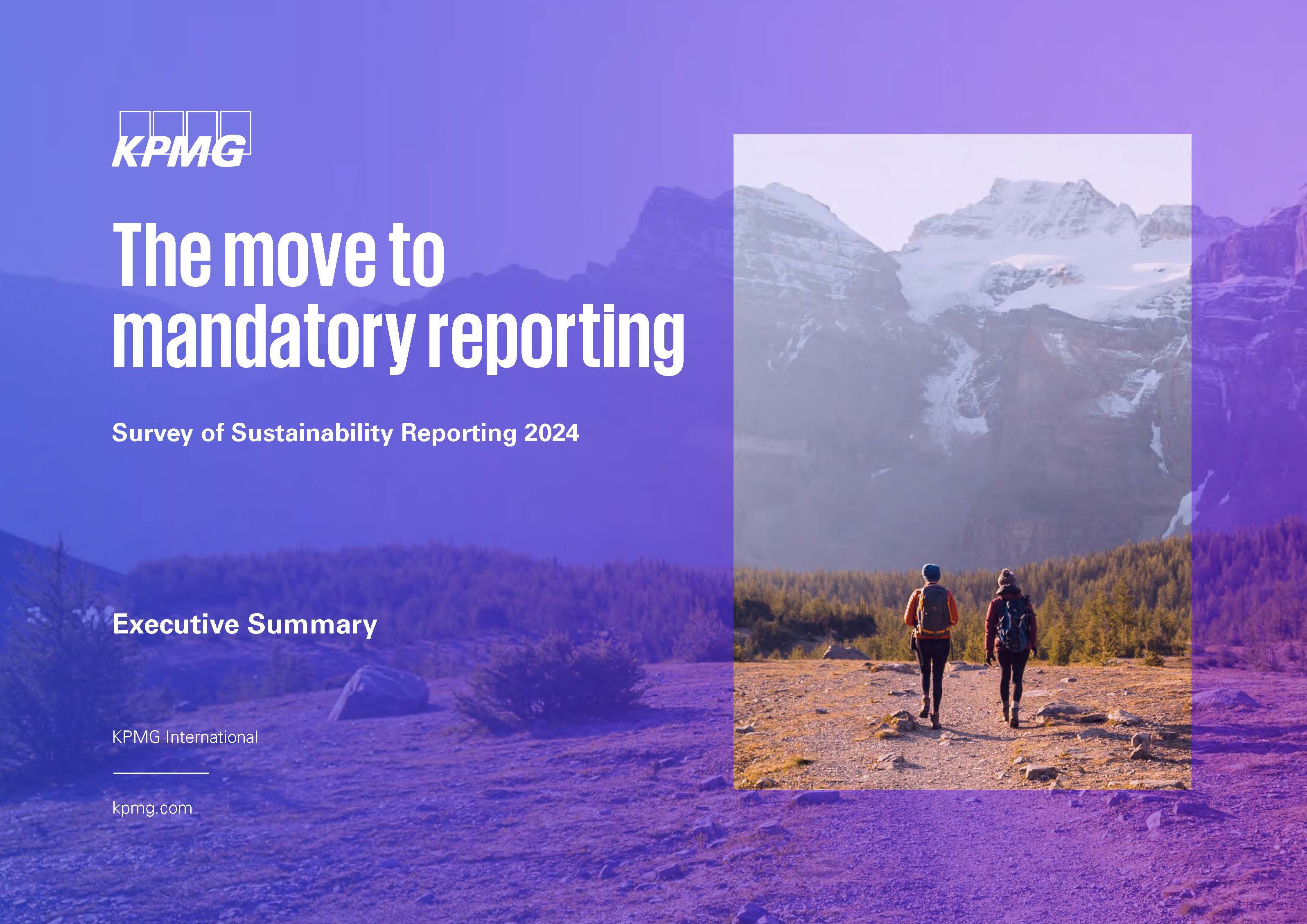Companies worldwide are preparing for the advent of mandatory reporting on sustainability, according to the 2024 edition of KPMG’s Survey of Sustainability Reporting. The research shows that sustainability reporting has become part of business as usual for almost all of the world’s largest 250 companies, and a large majority of the top 100 companies in each country, territory or jurisdiction. The last two years have seen significant increases in the proportion of companies publishing carbon reduction targets. The proportion of companies reporting on biodiversity remains lower but has similarly increased since 2022.
The survey finds growth in practices that will soon be mandatory in some jurisdictions, including the EU’s Corporate Sustainability Reporting Directive (CSRD). The report includes insights from KPMG member firms and draws on the expertise of KPMG subject matter specialists worldwide.

Six major trends from the report
- Reporting on sustainability and setting carbon targets has become part of business as usual.
- Some companies have already changed practices in advance of the move to mandatory reporting on sustainability under the EU’s CSRD.
- Double materiality, required under CSRD, is now used by half of the largest companies.
- Despite moves toward mandatory reporting, voluntary guidelines and standards remain widely-used.
- Reporting on biodiversity continues to increase.
- Adoption of Task Force on Climate-related Financial Disclosures (TCFD) recommendations has continued to increase with IFRS S2 ready to rise.
About the survey
but remains much less common than reporting only positive impacts.
Mandatory sustainability reporting is nearly upon us. The EU is phasing in its CSRD over several years but 2024’s KPMG Survey of Sustainability Reporting suggests that many companies are adopting its measures before they are required to do so.
We are making noticeable progress with ESG reporting in a way that supports short-term and long-term business objectives... We can do it. We are doing it. Let’s keep going.





